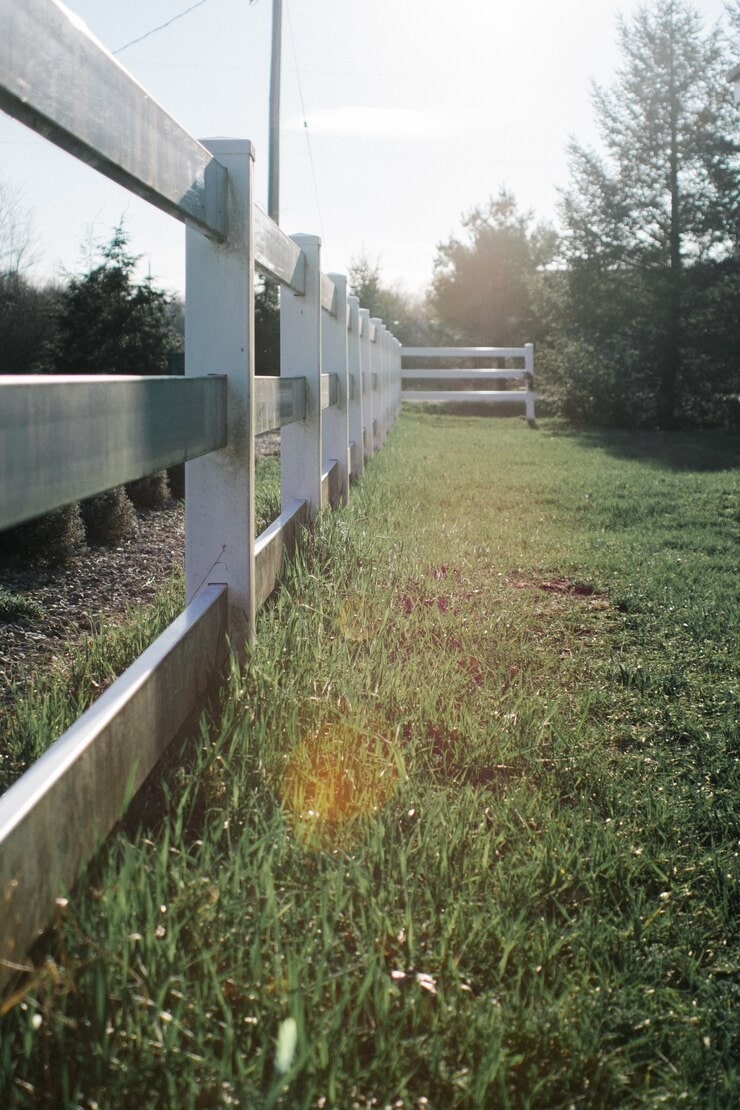
Remediation fencing is a kind of fencing that’s used as a protective barrier during land restoration or hazardous material clean-up projects. Essentially, it’s meant to secure the site, prevent unauthorised access and allow land to heal or contain contaminants before they’re cleaned up.
This fencing is very important to maintain public safety, keep the environment safe and responsibly take care of issues without letting them spread. So, if you need fencing for remediation purposes, it’s essential to choose sturdy fencing solutions that will serve their purpose well.
This fencing comes in various forms, depending on your needs. Mesh fencing may be right for short-term needs, but solid barriers may be needed for more extensive sites.
It’s best to have a discussion with your fencing specialists to determine the right option for your site. Describe the area you’re trying to contain on your property, as well as matters like your preferences and your budget.
Fencing is incredibly important for hazardous sites. In rural areas, it can be difficult for people to determine property lines and areas where they should and shouldn’t go, so people may wander onto unfenced property on accident. Remediation fencing helps to prevent people or animals from getting into a potentially dangerous site.
This will prevent cross-contamination and help keep the clean-up or restoration project streamlined and disruption-free. People or animals who enter the property may put themselves in danger, accidentally hurt the project or carry hazardous substances with them when they leave. Solid fencing can also prevent some dust and airborne particles from escaping the area.
You may also require fencing to comply with NZ’s regulations. Research what laws apply to your situation before you choose your fences so you understand what you need to do. Failure to comply with regulations, even if by accident, can lead to costly fines and legal issues.
Of course, the kind of fencing that would work best for your site will depend on your situation. Work closely with your fencing specialists to ensure safety and security for the land.
When selecting from your array of fencing options, work with your fencing contractors and consider the following qualities:
The Main Purpose Of Your Fences. Always identify the primary purpose of your fences and then look for fencing that meets those goals. For example, if you need to fence off a section of land that will contain horses, make sure your fencing is at least a metre and a half tall. Think about what you’re trying to keep in or out of your land so you choose suitable fences.
If you’re containing a hazardous site, then think about the specific hazards present and how you can prevent them from spreading.
Budget. Share your budget with your fencing contractors so that they understand how much you can afford to spend. Then, you can look at the fencing options they have that fit your budget.
Property Lines. When putting up fences, it’s extremely important to keep the fences within your property lines. Make sure you know where your property lines are so that you don’t accidentally build onto your neighbour’s land. Doing so can lead to disputes and frustrated neighbours.
Fencing Contractors. Research your potential fencing contractors themselves. Look into their qualifications, their experience and their available options. For best results, search for local fencing specialists who have experience with remediation fencing projects. Then, they can draw from their past projects to benefit your current situation.
If you’re not sure what to do, they can help you determine the best options for your site to meet your goals.
Gate Placement. Where will your gates be placed along your fence line? You’ll want your gates to be thoughtfully located in areas where you need them the most. But, too many gates may be unnecessary. Talk to your contractors about areas you think need gates the most and where they would suggest.
Installation. In order for your new fences to be sturdy and reliable, they’ll need to be installed correctly. Ask your remediation fencing contractors about their installation process, how they avoid any potential underground utilities and what they do to ensure fences stay anchored in place.
Then, talk to them about what you should do regarding fence maintenance. How often should you inspect your fences? Are there any particular maintenance tasks you should know about? If there are damages, can you call them for professional assistance?
Trust us at DFL Fencing for all of your fencing needs. Along with remediation fence services, we also have an array of other options for you to browse through. From secure electric fences to trusty farm fencing, we have something for every situation.
Would you like some assistance choosing your fences? We’re here to help. Call us on 02108191017 or use our contact page to reach us.
DFL Fencing: We help New Zealand properties stay safe and secure.